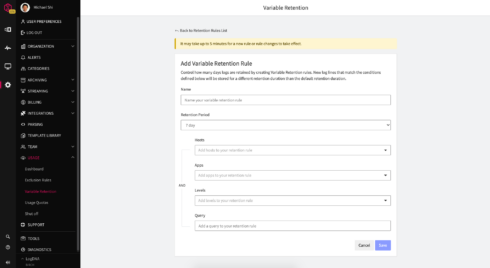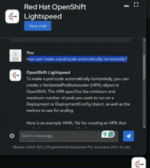
LogDNA has announced an early access release of its new variable retention feature. Variable retention allows users to save logs in LogDNA’s UI only while they’re relevant, which allows them to ingest new types of data and keep costs down.
Users can set rules by defining a LogDNA search syntax that will match logs and the retention length for which logs should be stored. Currently there are four retention tiers: 3 days, 7 days, 14 days, and 30 days.
Cloudian announces support for Red Hat OpenShift
With this latest support, OpenShift customers can deploy Cloudian HyperStore object storage in their own data centers.
Benefits include fully native S3 compatibility, simple API calls, multi-tenancy, multi-cloud support, enterprise-grade security, and cost savings.
“Our clients need solutions for modern applications data management on-prem, and Cloudian now offers one that combines agility and scalability in an OpenShift-ready platform,” said Teresa Annibale, regional vice president at EVOTEK, a premier enabler of secure digital business. “We’ve seen an enthusiastic response to this from our customers who already know Cloudian and see the operational and cost benefits of consolidating traditional and modern app persistent storage on a single solution.”
Esper announces $60 million in Series C funding
Esper makes it easier for IT teams to scale, manage, secure, and update edge devices using DevOps practices.
This funding round was led by Insight Partners, and other participants included existing investors Scale Venture Partners, Madrona Ventures, and Root Ventures. This Series C brings the company’s total funding to $100 million.
“Customer expectations are higher than ever. When a point of sale terminal in a retailer is out of order, the merchant doesn’t have the time or expertise to fix it. These devices are mission critical and expected to work flawlessly 24/7,” says Shiv Sundar, COO and co-founder at Esper. “This is especially true for devices directly tied to revenue generation, or in verticals like medical devices where a life might literally be on the line. We built Esper with the customer’s customer in mind.”








